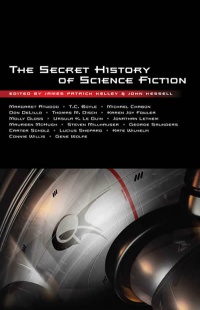 Coming from just about the middle of the 20th century (1953), Clarke’s Childhood’s End is not only a prime example of a science fiction classic, but even more, it deserves to be called a science fiction masterpiece. It’s quite simply one of the best sf novels I’ve ever read, and I keep wondering what took me so long to get around to reading it. It makes me wonder what other masterpieces are out there that I haven’t bothered to read yet.
Coming from just about the middle of the 20th century (1953), Clarke’s Childhood’s End is not only a prime example of a science fiction classic, but even more, it deserves to be called a science fiction masterpiece. It’s quite simply one of the best sf novels I’ve ever read, and I keep wondering what took me so long to get around to reading it. It makes me wonder what other masterpieces are out there that I haven’t bothered to read yet.
One of the things that most impressed me was how this novel departed from the common sf assumptions of the times, the optimistic attitude about humanity’s future and destiny and our ability to overcome any obstacle and achieve anything and go conquer the galaxy. Clarke dashed that view to pieces. But at the same time, the novel’s outlook is not entirely pessimistic either. Rather, it’s a bittersweet combination of optimism and pessimism. One of the prime lessons is that the end of one thing is also the beginning of another, and that what is a wondrous event from one perspective can be a profound tragedy from another, and vice versa. Clarke unflinchingly presented humanity as it faced its end; yet in that end, it also gave rise to something greater than itself. Tragically, humanity could take little solace in its extraordinary descendant species, since they were beyond all understanding. And that’s another lesson of the novel, that there may be things in the universe that will always be beyond our ability to understand and control, and we may reach a point where we will have to face that, no matter how bitter a pill it is to swallow. And, to throw in one more lesson: one generation can’t really control the next, which will inevitably end up with its own goals and doing its own thing. Clarke gives just about the most extreme demonstration of that imaginable.
One of the really interesting things about reading this book was that I got so many “echoes,” little bits of familiarity from later science fiction — themes, tropes, concepts, or images that I’m familiar with from other books or movies, that have been borrowed and re-used and changed and refined down through the years. One of the big ones was the image of giant alien motherships hovering over Earth’s cities, with all the sinister threat they imply. Another was aliens who come to conquer us, and yet another was aliens who come to help us (the Overlords fit both of these categories; there’s nothing simple about Clarke’s aliens here). Another was the presentation of a post-scarcity world. Another was the evolution of the human species and the development of super-beings.
Childhood’s End is one of those ageless novels that is as fresh today as it was in the 50’s. I didn’t notice anything that was technologically out of date. The Overlords use a “Stardrive” to power their ships, but the explanation of it is vague enough that there’s nothing to offend modern sensibilities. The use of relativistic time distortion is solid science, of course. There were some technological ideas included that were ahead of their time — what seemed to be references to CGI and virtual reality, for example.
I thought Clarke did an excellent job with the softer disciplines too, particularly in making good use of psychology and mythology. The various reactions of humanity to the circumstances seemed very believable, as was the way the Overlords manipulated human psychology to achieve their goals. And the way these aliens had become equated with certain characters from human mythology was quite incredible and mind-blowing.
I loved the way that, while humanity was facing it’s greatest tragedy, the Overlords, who seemed so incredibly advanced, were facing their own tragedy, one perhaps even worse. It was this, more than anything else, that made the Overlords so accessible, so believable as real sentient beings, and worthy as objects of sympathy.
What more can I say about this book? I am impressed. Very impressed. Why didn’t I read this years ago?














